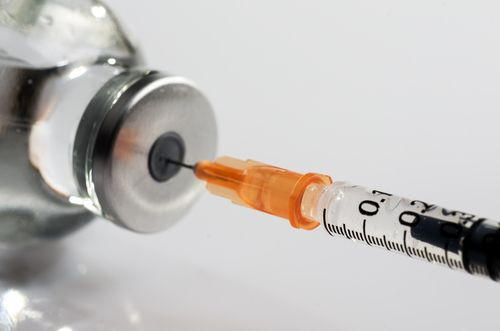Autism And Vaccines: Over 1.3 Million Kids Studied And Researchers Still Find That Vaccines Don't Cause Autism

The question as to whether vaccines cause autism is a heated debate, fueling what has come to be called an "anti-vaccination" movement among parents who believe in the unsubstantiated link. And according to a study in the journal Vaccine, autism still shows no link to vaccination in children.
The study was a meta-analysis of research involving 1,256,407 children. What meta-analysis means is that the existing research is used to give a cluster of information on a bigger scale. Five case-control studies involving 9920 children were also included in their analysis. Luke E. Taylor, Amy L. Swerdfeger, Guy D. Eslick, the study authors, found the five main points after observing the participants:
1.There was no relationship between vaccination and autism.
2.There was no relationship between vaccination and Autism Spectrum Disorder (ASD).
3.There was no relationship between autism/ASD and the measles, mumps, and rubella vaccine (MMR).
4.There was no relationship between autism/ASD and thimerosal.
5.There was no relationship between autism/ASD and mercury.
The researchers concluded that, in light of existing data, “vaccinations are not associated with the development of autism or autism spectrum disorder." However, some research does point to how environmental factors may play a bigger role in autism than previously thought. At the end of this paper, one of the study authors gave a firsthand account of how they handled vaccinating their own children.
As an epidemiologist I believe the data that is presented in this meta-analysis. However, as a parent of three children I have some understanding of the fears associated with reactions and effects of vaccines. My first two children have had febrile seizures after routine vaccinations, one of them a serious event. These events did not stop me from vaccinating my third child, however, I did take some proactive measures to reduce the risk of similar adverse effects. I vaccinated my child in the morning so that we were aware if [sic] any early adverse reaction during the day and I also gave my child a dose of paracetamol 30 min before the vaccination was given to reduce any fever that might develop after the injection. As a parent I know my children better than anyone and I equate their seizures to the effects of the vaccination by increasing their body temperature. For parents who do notice a significant change in their child's cognitive function and behaviour after a vaccination I encourage you to report these events immediately to your family physician and to the 'Vaccine Adverse Event Reporting System'.
Nevertheless, this information will still prove inconclusive for many, and with more celebrity input on topics like this, the heated debate continues. According to NBC, one in four parents still believes that vaccines cause autism in healthy children. Even so, those parents do believe that the benefits outweigh the risks. Television host and actress Kristin Cavallari, is not one of them. Earlier this year, the popular ex-television star defended her anti-vaccine stance by saying that this was her own personal choice. "There are very scary statistics out there regarding what is in vaccines and what they cause -- asthma, allergies, ear infections, all kinds of things. We feel like we are making the best decision for our kids," she said on Watch What Happens Live, a Bravo television series.
Most scientist across the board suggest that parents weigh the benefits and risks before completely removing the idea of vaccinations in the repertoire of things that they need to consider for their children. Vaccines can prevent against potentially fatal diseases, and their safety is constantly reevaluated by independent research organizations.



























